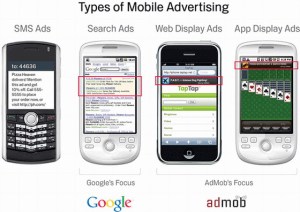
In a joint letter to the Federal Communications Commission, Consumer Watchdog and the Center for Digital Democracy have called for regulators to block Google’s planned $750 million acquisition of mobile advertising firm AdMob. According to the consumer advocacy groups, the acquisition not only represents anticompetitive behavior—with Google using its dominance of Internet search advertising to buy its way into a commanding position in mobile advertising—but also poses a significant threat to consumer privacy.
“The mobile sector is the next frontier of the digital revolution. Without vigorous competition and strong privacy guarantees this vital and growing segment of the online economy will be stifled,” the organizations wrote in their letter to the FCC (PDF). “Consumers will face higher prices, less innovation, and fewer choices.”
The call comes just days after the FCC announced it has issued a second request for information pertaining to the acquisition.
Consumer Watchdog and the Center for Digital Democracy base their claim of privacy concerns on the substantial amounts of data both companies maintain about consumers online and mobile behaviors, including their locations. AdMob targets advertising to consumers based on data like their behaviors, but also their age, ethnicity, gender, and education levers. Google also engages in behavioral advertising through its recently acquired subsidiary DoubleClick. The result, the consumer groups claim, could be a company with all the tools to engage in significant surveillance, profiling, and tracking of U.S. mobile users.

